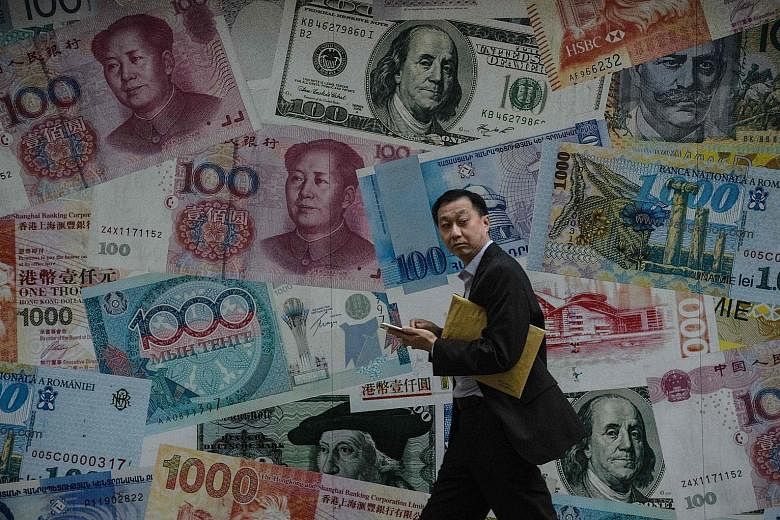In a year of currency surprises from Turkey to Argentina, add another shocker to the list: A 0.6 percent rise in Hong Kong's dollar.
The former British colony's sleepy foreign-exchange market suddenly came to life yesterday, propelling the local dollar to its biggest gain in 15 years. In a city that keeps its currency on one of the world's tightest leashes, swings greater than 0.4 per cent have happened only three times since Hong Kong widened its trading band in 2005.
"The strengthening came as a huge surprise," said Singapore-based trader at INTL FCStone Global Payments Wu Mingze.
The trigger for yesterday's gain is a mystery. Theories include rising local borrowing costs, position adjustments before upcoming holidays and a buying stampede by short-sellers hit with stop-losses.
Traders who have been selling the Hong Kong dollar to buy higher-yielding US assets could face a painful squeeze, particularly if they loaded up on leverage to amplify returns.
"Shorting the local currency has been a crowded trade," said co-head of treasury at China Everbright Bank's Hong Kong branch Ngan Kim Man.
Derivatives dealers are already bracing themselves for more volatility: A gauge of expected price swings derived from the options market more than doubled yesterday. Potential catalysts for further turbulence include an expected US Federal Reserve interest rate hike later this month and an increase in Hong Kong banks' so-called prime rate - something that has not happened since 2006.
The Hong Kong Monetary Authority, the city's de facto central bank, said in a statement yesterday that it will continue to maintain the Hong Kong dollar's link to the greenback. Foreign exchange and money markets are operating in an orderly manner, HKMA said, adding that market participants generally viewed elevated interbank rates as a contributing factor to the strengthening of the local dollar yesterday.
The risk for Hong Kong is that higher borrowing costs trigger a downturn in the city's property market, which is by some measures the world's most expensive.
Home prices in the city have soared 16 per cent over the past 12 months, extending a relentless upward march for most of the last 15 years, according to a Centaline Property Agency index. A jump in outstanding mortgages pushed the city's household debt-to-gross domestic product ratio to a record in the second quarter.
The Hong Kong dollar, which is subject to a trading band of HK$7.75 to HK$7.85 versus the greenback, has been stuck near the weak end of that range for the past six months, due in part to selling by carry traders.
But the difference between the city's three-month interbank borrowing costs and those of the US has narrowed by nearly one percentage point since March, when the gap reached its widest in a decade.
Yesterday, the currency climbed as much as 0.6 per cent to HK$7.7930 per greenback, the strongest level since November, before paring gains to trade 0.4 per cent higher at 5.30pm local time.
The Hong Kong dollar's three-month interbank borrowing cost, known as Hibor, jumped to the highest level in nearly a decade.
BLOOMBERG

